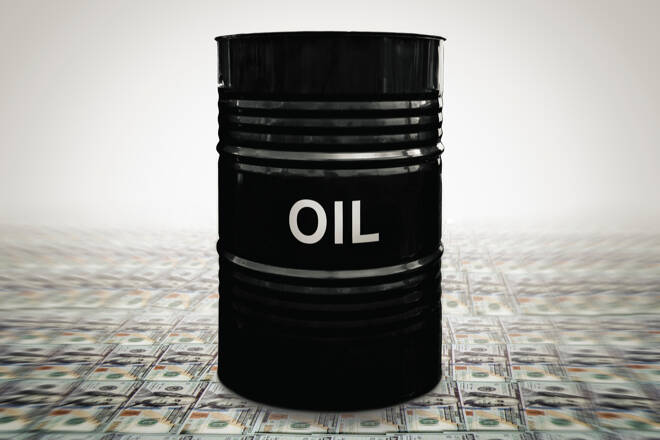Advertisement
Advertisement
Oil Prices Forecast: Markets React to Fed’s Rate Decision, Middle East Tensions
By:
Following the Fed's decision, crude futures rise over 1%, while OPEC's Iran urges an oil export halt to Israel, shaking production dynamics.
Highlights
- Prices climb over 1%, breaking a three-day losing trend.
- U.S. Federal Reserve decision sparks market optimism.
- Potential threats to oil supply as geopolitical issues escalate.
- J.P.Morgan reports a slight decrease in oil demand for October.
Oil Prices Rebound Following Fed’s Decision
Oil prices made a strong comeback, gaining over 1% on Thursday, potentially ending a three-day losing streak. The uptick is attributed to a renewed sense of risk appetite in the financial markets, following the U.S. Federal Reserve’s decision to maintain the benchmark interest rates.
Fed’s Interest Rate Decision and Global Impact
Brent crude futures saw an increase of 1.1% to settle at $85.52 a barrel, while its U.S. counterpart, the West Texas Intermediate crude futures, similarly ascended 1.1% to $81.35 a barrel. This rally in oil is synchronous with a general uplift in financial assets, post the Fed’s recent announcement. The central bank’s decision to keep the interest rate steady between 5.25% and 5.50% brought relief to policymakers who remain divided on the need for further monetary tightening.
Geopolitical Tensions in the Middle East
Investors remain watchful of the unfolding events in the Middle East, which pose potential threats to oil supply disruptions. A noteworthy development is Iran’s Supreme Leader Ayatollah Ali Khamenei’s urging for Muslim states to halt oil and food exports to Israel. Iran, an OPEC member, had an output of around 2.5 million barrels per day in 2022.
Global Oil Demand and U.S. Stockpile Data
In the realm of oil demand, J.P.Morgan analysts put forth that the global demand in October stood at 102.1 million barrels-per-day, slightly under their prior estimate. Concurrently, data from the U.S. Energy Information Administration highlighted an increase in the country’s crude stocks, attributing it to refiners’ slower-than-expected restart post seasonal maintenance.
Outlook for Oil: Caution Prevails
Taking into account the Fed’s recent decision and mounting geopolitical tensions, the oil market’s sentiment leans towards caution. The subtle rebound in prices might be short-lived, especially when considering underlying factors.
Notably, the call for halting oil and food exports by Iran’s Supreme Leader casts a shadow of uncertainty on supply dynamics. Coupled with J.P.Morgan’s report indicating a drop in global oil demand and the rising U.S. crude stockpiles, these developments present headwinds for oil prices.
Furthermore, the Bank of England’s forthcoming meeting and the Euro zone’s dampened inflation outlook only add to the prevailing caution in the market’s medium-term perspective.
Technical Analysis
Light crude oil futures currently trade at $81.34, above the 200-day moving average of $78.24, indicating a long-term bullish trend. However, it remains below the 50-day moving average of $86.22, suggesting a potential short-term bearish sentiment.
The price finds itself in between minor support at $77.43 and minor resistance at $82.68, with a more substantial resistance looming at $88.21. Crossing above the minor resistance might open the way to challenge the main resistance, while a decline may see a test of the minor support.
Overall, the market sentiment leans cautiously bullish in the broader context, but short-term bearish pressures persist.
About the Author
James Hyerczykauthor
James Hyerczyk is a U.S. based seasoned technical analyst and educator with over 40 years of experience in market analysis and trading, specializing in chart patterns and price movement. He is the author of two books on technical analysis and has a background in both futures and stock markets.
Advertisement
